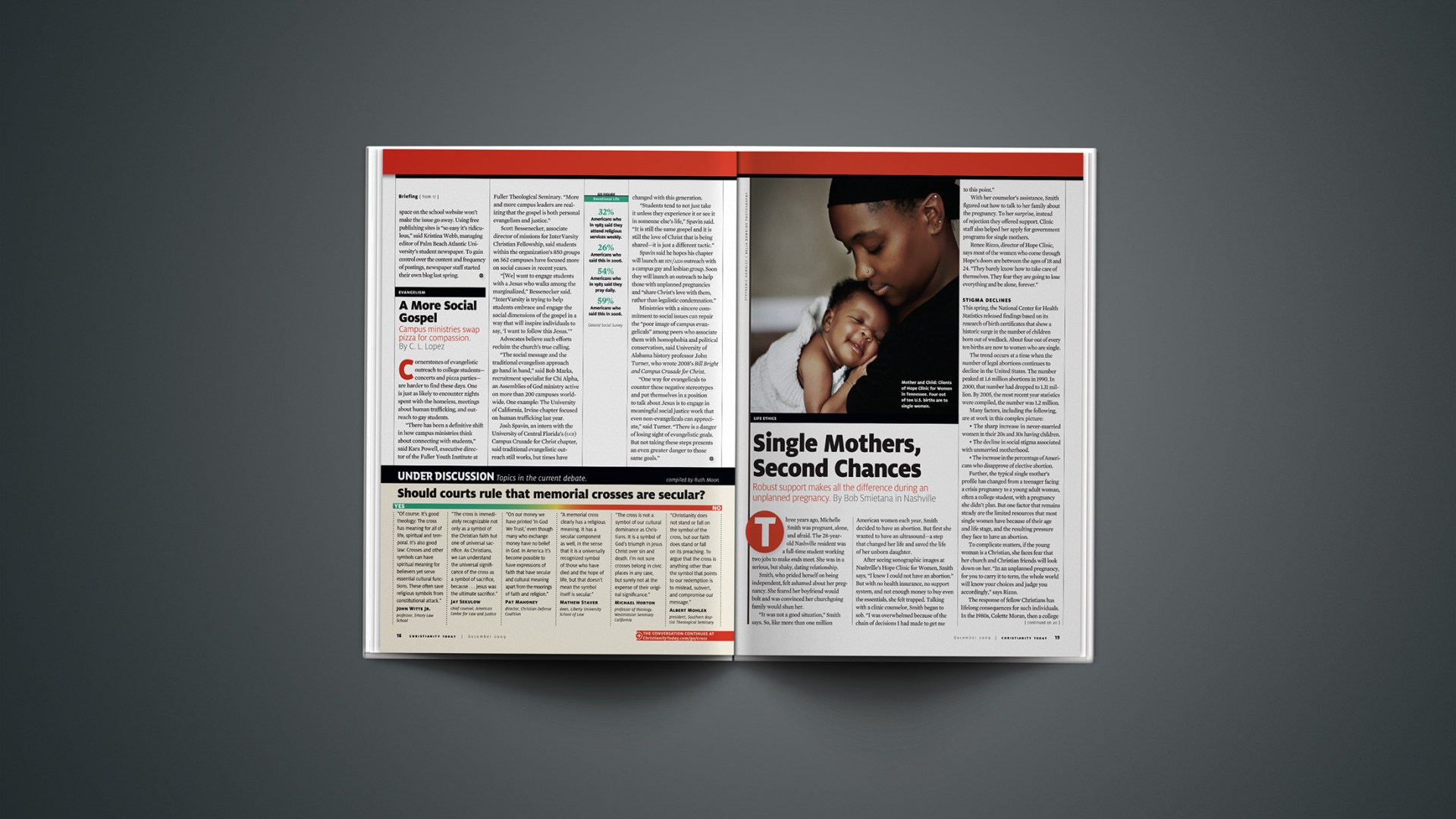Cornerstones of evangelistic outreach to college students—concerts and pizza parties—are harder to find these days. One is just as likely to encounter nights spent with the homeless, meetings about human trafficking, and out-reach to gay students.
“There has been a definitive shift in how campus ministries think about connecting with students,” said Kara Powell, executive director of the Fuller Youth Institute at Fuller Theological Seminary. “More and more campus leaders are realizing that the gospel is both personal evangelism and justice.”
Scott Bessenecker, associate director of missions for InterVarsity Christian Fellowship, said students within the organization’s 850 groups on 562 campuses have focused more on social causes in recent years.
“[We] want to engage students with a Jesus who walks among the marginalized,” Bessenecker said. “InterVarsity is trying to help students embrace and engage the social dimensions of the gospel in a way that will inspire individuals to say, ‘I want to follow this Jesus.'”
Advocates believe such efforts reclaim the church’s true calling.
“The social message and the traditional evangelism approach go hand in hand,” said Bob Marks, recruitment specialist for Chi Alpha, an Assemblies of God ministry active on more than 200 campuses worldwide. One example: The University of California, Irvine chapter focused on human trafficking last year.
Josh Spavin, an intern with the University of Central Florida’s (UCF) Campus Crusade for Christ chapter, said traditional evangelistic outreach still works, but times have changed with this generation.
“Students tend to not just take it unless they experience it or see it in someone else’s life,” Spavin said. “It is still the same gospel and it is still the love of Christ that is being shared—it is just a different tactic.”
Spavin said he hopes his chapter will launch an HIV/AIDS outreach with a campus gay and lesbian group. Soon they will launch an outreach to help those with unplanned pregnancies and “share Christ’s love with them, rather than legalistic condemnation.”
Ministries with a sincere commitment to social issues can repair the “poor image of campus evangelicals” among peers who associate them with homophobia and political conservatism, said University of Alabama history professor John Turner, who wrote 2008’s Bill Bright and Campus Crusade for Christ.
“One way for evangelicals to counter these negative stereotypes and put themselves in a position to talk about Jesus is to engage in meaningful social justice work that even non-evangelicals can appreciate,” said Turner. “There is a danger of losing sight of evangelistic goals. But not taking these steps presents an even greater danger to those same goals.”
Copyright © 2009 Christianity Today. Click for reprint information.
Related Elsewhere:
Christianity Today has previous articles on higher education, including:
Breaking the Bubble | Colleges debate student newspaper rules as Internet spreads stories far beyond campus. (December 9, 2009)
Where Jerusalem and Mecca Meet | One Baptist college’s social (and evangelistic) experiment in having Muslim students on campus. (July 15, 2009)
An Unlikely Gay-Straight Alliance | Campus Crusade launches HIV/AIDS outreach with campus gay-lesbian group. (January 13, 2009)










